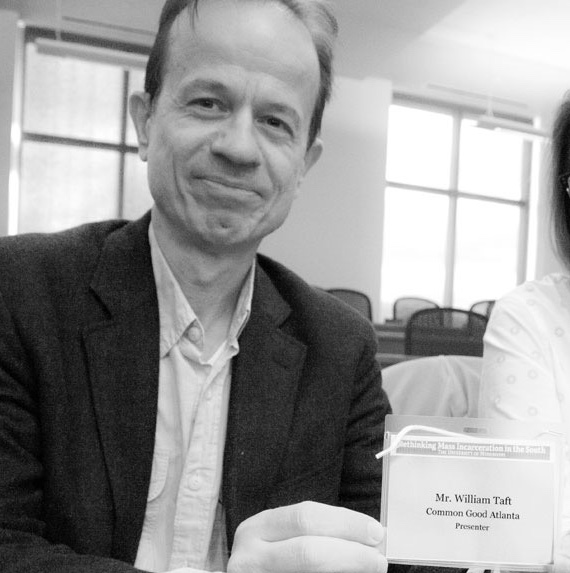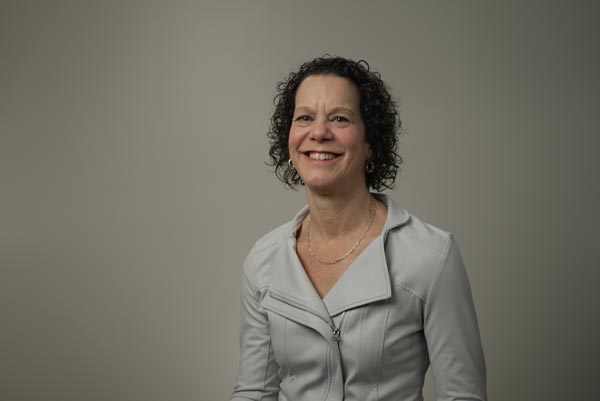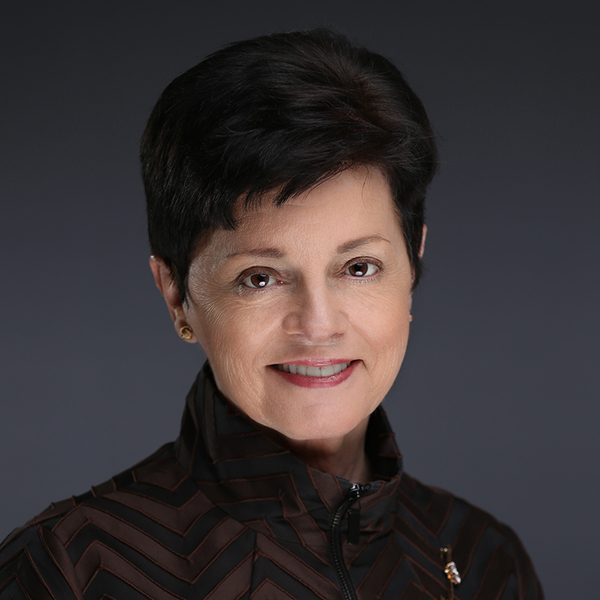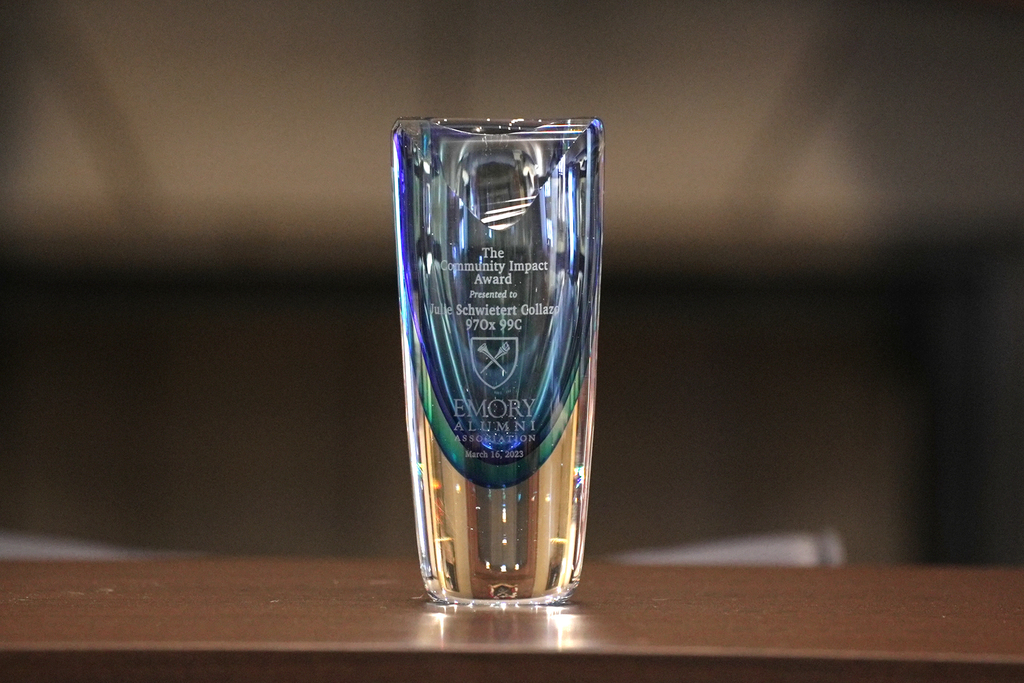
Celebrating the 2025 Emory Alumni Awards
The Emory Alumni Awards are an opportunity to reflect on the everyday champions, luminary leaders, and change-makers who call Emory home. This year, we’re honoring four alumni whose stories of triumph and trailblazing serve as an inspiration to us all.

William “Bill” Taft has made it his mission to extend the benefits of higher education to Georgians who normally wouldn’t have access to college. Taft is the co-founder and academic director of Common Good Atlanta, a statewide nonprofit that connects Georgia’s colleges and professors with prisoners who want to learn.
In 2008, Sarah Higinbotham, now an assistant professor of English at Emory’s Oxford College, began teaching a fiction writing course at a men’s prison in north Atlanta. Taft joined her in 2010. The pair developed the program into a statewide nonprofit that now offers accredited college programming inside seven Georgia prisons. Common Good Atlanta collaborates with Emory University, Georgia Institute of Technology, Georgia State University, Morehouse College, Spelman College, and University of Georgia faculty members.
A guitarist, songwriter, and storyteller, Taft has been invited to travel across the country to give talks about his work. In 2022, he was featured in a documentary about Common Good Atlanta, Breaking Down the Walls of Mass Incarceration, which includes concert footage of his performances as a musician.

As a leadership coach, Michele Davis spends her working hours partnering with CEOs and senior leaders to develop strategies that enhance their effectiveness. In her free time, she transfers those strategies to the organizations and boards that mean the most to her.
At Emory University, Davis has invested her time in the Board of Trustees Development Committee, Emory Campaign Council, Emory Alumni Board, Emory Alumni Association (EAA) reunion committees, the EAA Boston Chapter, Emory Ambassadors, Emory Alumni Presidents Club, and the Women of Emory Impact Circle.
During her tenure as the Emory Alumni Board president, Davis was an integral part of launching the 1915 Scholars program for low-income first-generation students. Davis was passionate about supporting access and equity of experience for all students, exploring ways to strengthen connections through key touchpoints in the student-alumni continuum, and working with school alumni boards to advance shared initiatives.
In her personal life, Davis has committed herself to community service, working with multiple nonprofit organizations in the Boston area.
John Hardman spent more than 20 years as the head of the Carter Center. He provided leadership for the center’s program initiatives including election monitoring in Asia, Africa and Latin America. He also had a role in public health training in Ethiopia, global development strategies, conflict resolution efforts, and agriculture programs aimed at improving food production in Africa and North Korea.
Hardman joined the Carter Center in 1989 as head of the Initiative to Reduce Global Tobacco Use and directed its Mental Health Program from 1991 to 1993. He was named executive officer in 1992, and in March 2007 became president and CEO.
Hardman received his medical degree from the Medical College of Georgia, trained in psychiatry as a resident at the Mayo Clinic, and completed a child psychiatry fellowship at Emory University. He taught at Emory University School of Medicine and was medical director at Peachford Hospital.
He has also held leadership positions with many professional and community organizations. Hardman served on the board of directors of the Task Force for Child Survival and Development and the Blum Center for Developing Economies at the University of California, Berkeley. Along with his work with the Carter Center, Hardman has been part of the Emory School of Medicine Advisory Board and the Bobby Jones Advisory Board.

Chilton Davis Varner has described her Emory service as “far and away the most rewarding.” Senior counsel for trial and global disputes with King & Spalding, Varner was the firm’s first female litigation partner in 1983 and the first woman elected to the firm’s management committee in 1995.
She speaks regularly on women’s issues and has taught a session of the Temple University Graduate Program in Litigation titled “Women as Trial Lawyers.” She also gave the Kolsby Distinguished Lecture in Trial Advocacy at Temple University Law School in 2014.
Varner was selected for the short list of leading women lawyers by the National Law Journal, Benchmark, Law360, Chambers, the American Lawyer, US News & World Report Best Lawyers, the International Who’s Who in Product Liability, and LMG Life Sciences.
Now an emerita trustee, Varner served on Emory’s Board of Trustees from 1995 to 2013. She is a past president of the Emory Law Alumni Association and has been recognized as an Emory Law Distinguished Alumna. In 2012, she was also the inaugural recipient of Emory Law’s Eléonore Raoul Greene Trailblazer Award. She’s also served with the Emory Chamber Music Society and Emory Alumni President’s Club. She is president emeritus of the Supreme Court Historical Society.
In 2014, Varner received the J. Pollard Turman Alumni Service Award—one of the highest honors of the Emory Alumni Association and designated the $25,000 pledge she received to benefit Emory Law.


